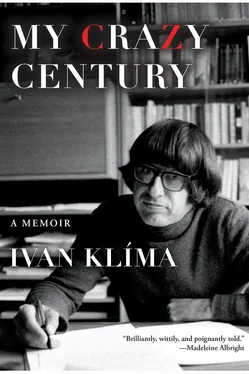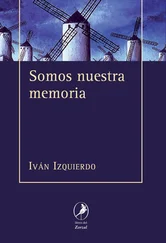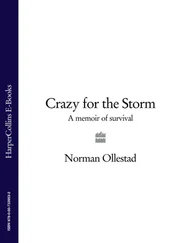We know that children quickly adapt to a new environment and a new language. They will accept the new country as their homeland. Nevertheless, even they are forced to break all previous ties. They are deprived of grandparents and other relatives, and if they are old enough to perceive their homeland, they lose that also. And what if the parents love their native land, their town, their language, their country and want to raise their children so that they have essentially the same values? Wouldn’t emigration leave a spiritual or physical burden on the children as well?
Parents make decisions for their children until they are old enough to choose their fate themselves. It is possible that when they grow up, they will reproach their parents or, on the other hand, praise them. But the decision whether to or not stay is the parents’.
For many of those who left, the free conditions helped them apply their gifts and abilities. Others were overwhelmed by their new reality, the new conditions in which they felt themselves uprooted. After the Bolshevik Revolution, most Russian emigrants incorporated themselves into their new environment only with difficulty and, for the most part, never learned the language of the country that had offered them asylum.
For many, freedom that they do not earn becomes something foreign and false. If a person is threatened with almost certain death, as the Jews were during Nazism, the decision to leave or remain is a false dilemma. It is different for a person whose life will most likely not be imperiled.
In a country that suppresses freedom, each citizen has the right to freely decide which of his values are more important. One can say: I do not want to live under these degrading circumstances and will do everything to escape them. One can also say: They are depriving me of most of my rights, but I will not allow myself to be deprived of my home and everything that goes with it. Therefore, I will stay.
The wave of emigration after the Soviet occupation was tragic for life in Czechoslovakia. If we consider the intellectuals, we see that most remained, even though living in oppressed conditions meant for them, at the very least, losing their jobs and sometimes even facing imprisonment.
But in this recent history, we notice another outcome. Many who left felt so tied to their homeland and its fate that they did everything in their power to counteract this decision. Various cultural organizations emerged abroad, even political parties and publishers — the books published abroad were then smuggled into their homeland. Even though they were far from their home, these exiles remained connected to the life of their country, perhaps even more than those who remained.
There is no generally valid resolution to the dilemma of whether to go or to stay. Each point of view has its justifications. It is up to each individual to decide which values are the most important to him.
In conclusion, I would just like to mention one curiosity that is characteristic of our history: Except for Václav Klaus, each of our presidents has spent part of his life in exile — or in prison.
Occupation, Collaboration, and Intellectual Riffraff
A brief dictionary definition of “occupation” reads: the seizure and conquest of a foreign territory.
If we conceive of the situation in which the Czech kingdom found itself after the defeat at White Mountain as the seizure of territory for the benefit of a foreign power — with a definite part of the inhabitants of the kingdom accepting this state of affairs — we can declare that, beginning in the seventeenth century, most generations spent their lives in occupied territory. Although the ruling Austrian powers became more liberal during the last few decades before the First World War, at the beginning of their reign, just like almost every other occupying power in history, they ushered in murder. Furthermore, they executed twenty-seven representatives of the Czech elite in a manner that was cruel even for those times. The elite, especially the spiritual elite, are the first target of all occupiers, even revolutionaries.
After twenty years of freedom during the First Czechoslovak Republic beginning in 1918, there followed a further seventy years of direct and indirect, but much crueler, occupation. It is no exaggeration to say that we have had a long experience with occupation. (In this respect, we do not differ greatly from many other small European nations.)
In all cases, including the last two — the Nazi and subsequent Soviet occupations — the government of the entire territory was moved to centers of foreign powers. It is not important that in the second case, the first twenty years of the occupation took place without the presence of occupying troops but only with the assistance of hundreds of Soviet advisers and hundreds of thousands of executors following the foreign power orders.
The phenomenon of collaboration is necessarily and legitimately connected with every occupation. Without it, the occupier could achieve its ends only with difficulty.
Collaboration, once again according to the dictionary, is determined by occupation. It is dishonorable (usually voluntary) cooperation (both overt and covert) with a ruling enemy or occupiers. If we focus our attention on the word “dishonorable,” we can expand this definition. Collaboration is cooperation with any illegitimate totalitarian regime that systematically violates the fundamental human rights and freedoms of its citizens.
Determining the extent of collaboration after the enemy is defeated or the totalitarian regime eliminated is not easy. Except for a handful of those who openly or secretly battled against the enemy, most inhabitants, at least passively, accepted the occupation or illegitimate regime.
After all, it was necessary to sow the fields, go to work, and earn one’s pay. The trains ran and the stores were open, even if at the same time thousands of people disappeared behind the fences of concentration camps, ended up before firing squads, or, in the case of Nazi occupations, perished in gas chambers. Occupying or illegitimate powers leave in peace most people who accept occupation as an unavoidable reality, even if it goes against their way of thinking. When necessary, the government is willing to corrupt this group of citizens — as the Nazis successfully did during the war — by offering them more money or greater rations of food.
Both occupiers and totalitarian regimes, of course, not only require this passive collaboration (they are well aware that it is legitimate and, in its own way, unavoidable for the subdued masses), but also seek support among those without whom it would be difficult to govern the country. They appeal to at least some of the populace and try to influence their thinking and to raise the youth in the “new” spirit. So they try to win over those who are most visible, whose positions or careers enjoy general respect or from whom society expects moral accountability, that is, politicians, distinguished journalists, well-known artists, and pedagogues. Essentially, all of the most well-known representatives of the intelligentsia are welcomed. In the entirety of modern history of war, occupation, and revolution, the victorious power always manages to acquire active collaborationists at all levels of society.
The minister of education during the protectorate and the founder of the activist youth organization Curatorship for Czech Youth, Emanuel Moravec — a symbol of collaboration with Nazi power — presents an admiring comment concerning Hitler, which he apparently heard from a German friend:
I would like you to keep one thing in mind. The Führer meant what he said, and if he said that this or that must look like this or that, you may be certain that he will do everything he said he would. And here we are at the question of intelligence, which culminates in genius. Genius is not leadership but rather prescience, the premonition of progress. The world is being rebuilt; we are going through a great, historical spring cleaning which, as you can clearly see, requires a little time. The democratic order that is now exiting was built by the Jews. If we look back in history, we see that all kingdoms and orders built by the Jews and Semites perished precisely when they rose, so to speak, to the stars. . Of one thing we are convinced. Our Greater German Reich and its courageous army will destroy the enemy. We shall be victorious!
Читать дальше












